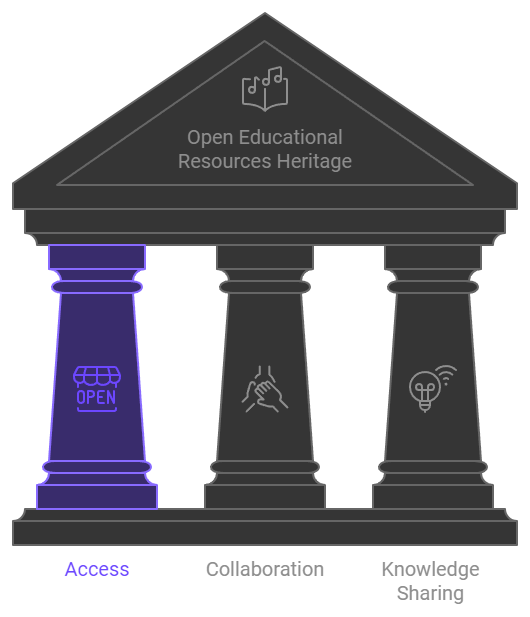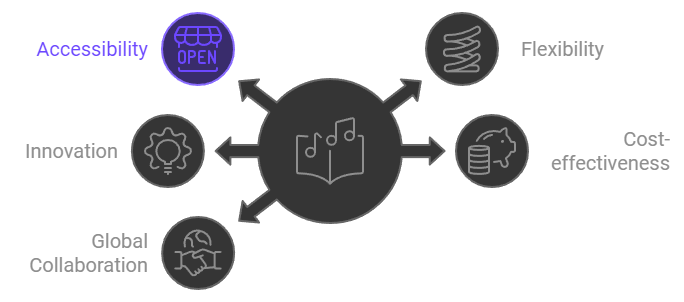OERchains
Why Open Educational Resources (OERs)?
Heritage of OERs

Open Educational Resources (OERs) have a rich history rooted in the principles of access, collaboration, and knowledge sharing. Originating in the late 1990s, the OER movement has grown significantly, driven by the belief that education should be freely accessible to all. This foundational heritage aligns with our commitment to open-source values and sustainable educational practices.
Alignment with OERchains Values
At OERchains, we believe that our focus on OERs is not just a technical choice; it’s a philosophical one. Our core values emphasize:
- Open Source: Promoting transparency and collaboration within communities.
- Regenerative Economics: Advocating for systems that enhance educational access sustainably.
- Community Empowerment: Fostering a collaborative environment where educators and learners can contribute to and benefit from shared resources.
By centering our efforts on OERs, we aim to leverage this heritage to build innovative solutions that empower users and contribute to a more equitable learning ecosystem.
Advantages of OERs

- Accessibility: OERs break down barriers to education by providing free and open access to learning materials.
- Flexibility: Educators can adapt and customize OERs to meet specific learning needs and contexts.
- Innovation: The open nature of OERs encourages continuous improvement and innovation in educational content.
- Cost-effectiveness: Reduces the financial burden on students and educational institutions.
- Global Collaboration: Facilitates knowledge sharing across borders and cultures.
OERs and Blockchain Technology
By combining OERs with blockchain technology, OERchains aims to:
- Enhance the discoverability and interoperability of educational resources
- Ensure proper attribution and tracking of content creation and usage
- Create a decentralized ecosystem for sharing and managing educational content
- Implement smart contracts for fair attribution and incentivization
Integrating OERchains with Established OER Organizations
OERchains aims to complement and enhance the efforts of existing OER organizations by leveraging blockchain technology. We plan to collaborate with key players in the OER ecosystem to create a more robust, decentralized, and interoperable infrastructure for open educational resources. Some of our integration plans include:
- Creative Commons Integration:
- Implement Creative Commons licensing directly into the blockchain, ensuring proper attribution and usage rights are embedded within each OER.
- Develop smart contracts that automatically enforce and track CC license compliance.
- UNESCO OER Dynamic Coalition Alignment:
- Align OERchains’ goals with UNESCO’s five areas of action for OERs, particularly in developing supportive policies and creating sustainability models.
- Contribute to UNESCO’s efforts by showcasing how blockchain can facilitate international cooperation in OER sharing and development.
- SPARC Collaboration:
- Partner with SPARC to promote the use of blockchain in enhancing open access to educational materials.
- Integrate OERchains with existing databases and repositories to improve discoverability and interoperability.
- OER Commons Interoperability:
- Create bridges between OERchains and OER Commons to allow for easy import/export of resources between platforms.
- Enhance metadata standards to improve searchability across both systems.
- OpenStax Integration:
- Collaborate with OpenStax to incorporate their free, peer-reviewed textbooks into the OERchains ecosystem.
- Develop plugins or APIs that allow seamless integration between OpenStax content and the OERchains platform.